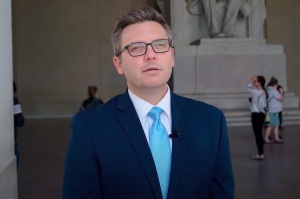US Permanently Bans Patents for Human Embryos
The United States has mandated a permanent ban on issuing patents on human embryos. President Barack Obama signed the prohibition into law Sept. 16 as part of a patent reform measure titled the "America Invents Act."
The "Weldon Patent Ban" will ensure that the U.S. Patent and Trade Office cannot issue patents allowing companies or individuals to patent human embryos. Prior to the ban, the prohibition of human embryo patents had to be renewed every year.
The key language, in section 33, of the new law states, "Notwithstanding any other provision of this title, no patent may issue on a claim directed to or encompassing a human organism."
"I am pleased to sign the America Invents Act. This much-needed reform will speed up the patent process so that innovators and entrepreneurs can turn a new invention into a business as quickly as possible," Obama said in a statement released by the Office of the Press Secretary.
The original bill, sponsored by former Rep. Dave Weldon (R-Fla.), faced strong opposition from the biotechnology industry, which sought the ability to patent human beings created by cloning or other methods, Life Site News reported.
Embryonic stem cells are derived from embryos that develop when eggs are fertilized. Often, scientists obtained stem cells from discarded embryos stored at in-vitro fertilization clinics or they use cells from aborted fetuses.
Christians have often debated whether the medical benefits of embryonic stem cell research outweigh the obvious moral and biblical implications.
Many Christians argue that scientists are creating life only to destroy it in the name of science, which violates biblical principles and is ultimately murder.
Advocates of embryonic stem cell research point out that the cells can be used to replace damaged or sick cells in a patient with an injury or degenerative disease. For instance, stem cells have been used to aid patients with Alzheimer’s and Parkinson’s disease.




























